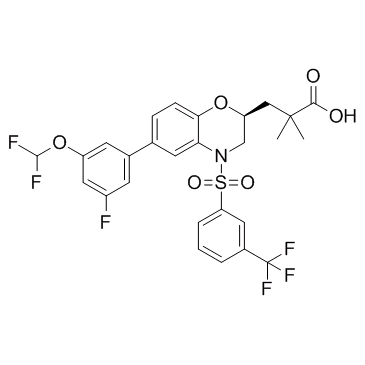| In Vivo |
LYC-55716 modulates gene expression of RORγ expressing T lymphocyte immune cells, resulting in enhanced effector function, as well as decreased immunosuppression, resulting in decreased tumor growth, and improves survival in in vivo. Upon oral administration of RORγ agonist LYC-55716, this agent selectively binds to the nuclear receptor transcription factor RORγ, forming a receptor complex that translocates to the nucleus, and binds to ROR response elements (ROREs), enhancing the function, proliferation and survival of type 17 T cells, including Th17 (helper T cells) and Tc17 (cytotoxic T cells). This may increase the expression of co-stimulatory molecules and decrease the expression of co-inhibitory molecules on T cells leading to increased production of cytokines and chemokines by T cells, decreases proliferation of regulatory T cells (Tregs), and abrogation of tumor-induced immunosuppression. This ultimately induces a T-cell-mediated immune response against cancer cells and leads to a reduction in tumor cell growth. RORγ, the nuclear receptor transcription factor that is involved in Th17/Tc17 differentiation, plays a key role in immune activation. LYC-55716 is also orally bioavailable, while the new generation of immuno-oncology drugs-ncluding PD-1/PD-L1 inhibitors are delivered by injection[1].
|
